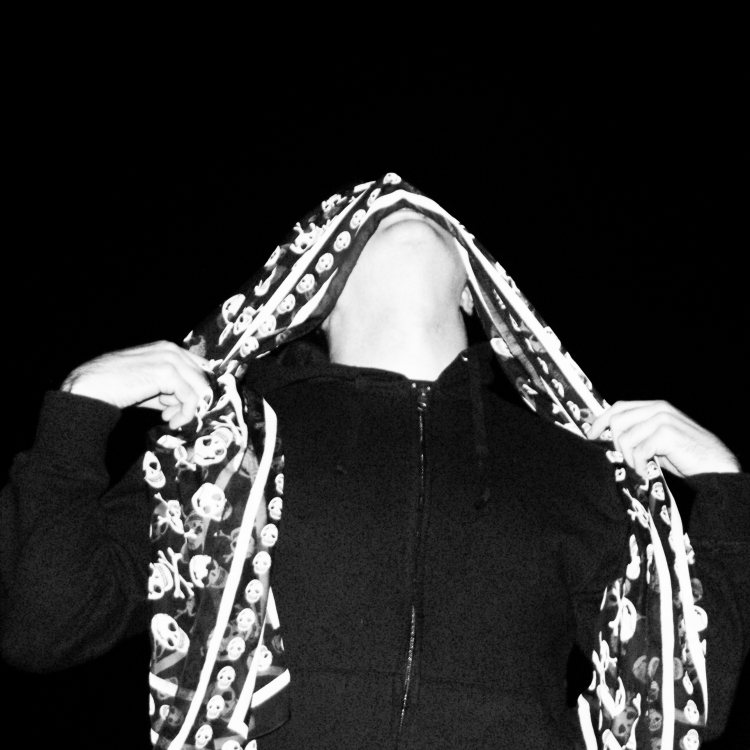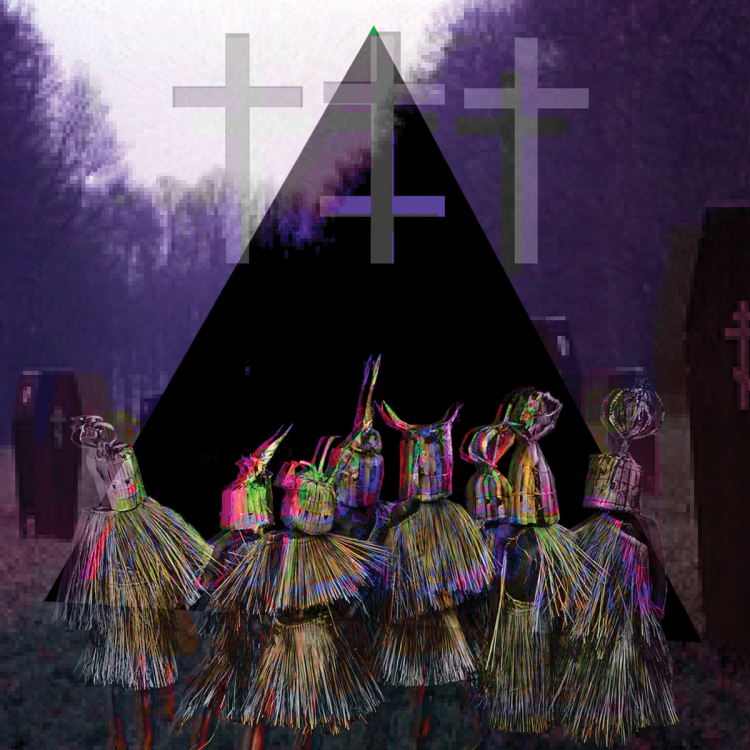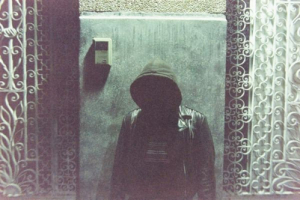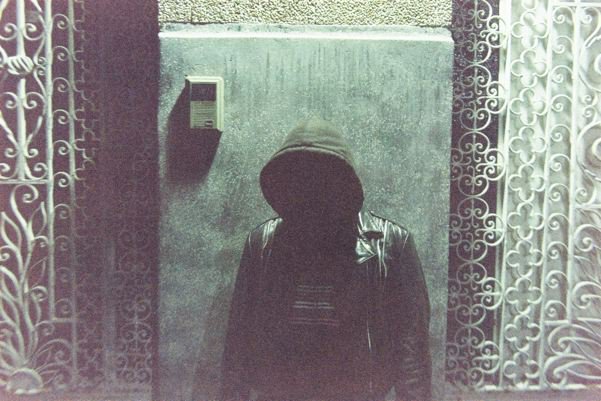Hello Ritualz and thank you for joining us on Brutal! I think this is your first time on Brutal so let’s start off with a warm-up question. What are three of your favorite albums of all time and why?
Ritualz: Hey, thanks for having me. My three favorite albums are "Antichrist Superstar" by Marilyn Manson, "The Downward Spiral" by Nine Inch Nails, and "Mellon Collie and the Infinite Sadness" by the Smashing Pumpkins. I am usually into more underground stuff but you can't argue these are the best of the best. I like all three because they excel at doing something different on every song. It's something important to me and that I've always tried to do with my own music. I hate when bands just make the same song over and over again. I like that "Antichrist Superstar" and "The Downward Spiral" are really good at being aggressive albums while being super emotional and melodic. Even the noisier arrangements on both albums have some sort of melody or sound musical, also something I look for in music. I like aggressive music, I like pop music, so it's great to have both at the same time. "Mellon Collie" is just amazing songwriting. Billy Corgan is a genius. The best riffs, the best hooks, powerful, angsty. Very 90s.
I’d like to do a bit of a dive into the history of Ritualz. When did you discover the witch house scene and why did you decide to create music in this genre?
Ritualz: I first listened to Salem in 2009 but didn't think much of it at the time. I found it tagged as "gothic chillwave" and I was expecting a sadder Washed Out. I listened to White Ring a couple of months later and they blew me away. I realized it was not that different from the music I was doing myself before, just slower. I never considered making that style of music or even making music anymore at that point, but I had literally nothing to do during spring break so I opened up Reason and made 'gOth bb' and '>>>>▲<<<<' in a day or two. I was already involved in this internet music scene of blogs, last.fm, etc. from where witch house was born so I just kind of went with it and decided to open a Myspace page after a friend I showed the tracks to insisted I did.

Your debut album “†‡†” was released all the way back in 2010 via Disaro. What is your fondest memory of this moment in Ritualz’ history? Was it the actual release, the fact that a label took interest in the project, or something much more than that?
Ritualz: It's an EP, not an album. I think my fondest memory of that time is how things were online in general. It was a really good time to be online. It wasn't the mess it is today. For music it was a great, wild time. The underground was sort of unifying globally through blogs, myspace and last.fm. It had been happening for years but at that time it was easier than ever before to get into some really niche stuff and meet like-minded people. I guess it still is today but it's not pure anymore, that innocence and authenticity of the old internet is gone.
I posted those first tracks on Myspace and sent my tracks to a couple of blogs just a couple of days after making them and within a week I was offered to release an EP with Disaro and I was playing my first show locally, a year later I was touring Europe. I just loved how natural everything was. Things just happened incredibly fast for me and without much effort. I was just happy people wanted to listen to my music. I was excited Disaro showed interest because the label was super popular at the time, at least on the online underground. I never planned to make an EP, or even another track, but I was glad I had to.
Following the debut album, you released a versus album with Fostercare. How did this collaboration come to be? Did you reach out to them, vice versa, or was it a mutual thing?
Ritualz: It was actually Robot Elephant's idea, this label from the UK. We both had tracks on "Isvolt", a compilation they released with acts on Disaro, and a couple of months after it came out they came up with this idea to do the split. I love Fostercare but I never really talked to him except for a few emails while we were working on the split. It just seemed a good idea so I accepted. I'm glad he did too, it's a good record.
In 2012 you released the split “Hypermotion B / Hypermotion X” with Funerals on the label MishkaNYC. What was the idea behind this split? What were the themes and the like?
Ritualz: I think it was Funereal's idea. They were working on the Mishka blog and Mishka had their online label thing going on at the time, so they reached out to me about the split. It was supposed to be a split but their tracks were like really polished house music while mine were lo-fi dark pop. Like the idea to do a split was born from knowing each other from the witch house scene but we both had moved on by the time we actually started working on it. I didn't feel they worked together so they became two separate but related EPs. The theme for my side was love and space. Like some cosmic quality of love. I think those four tracks sound really outer space-y. 'Alien' is about literally having sex with an extraterrestrial being.
In 2014 you released an anthology titled “Outworld Music” which collected a total of four separate EPs. Why did you decide to release them as EPs at first instead of just doing a collective album?
Ritualz: I made "Outworld Music" in between tours and to have some new music out before I toured again. I was feeling this pressure to put out music constantly so I added the "I" to the title because I thought I could do more releases like that if I kept touring and had no time to work on an album, which is exactly what happened and why I made "OWM II". Some time after that I started working on the tracks that ended up on "OWM III". I hadn't planned for them to be part of this series as they were very different. But then I came up with the concept for "Outworld Music" as a whole. The first two EPs each had their own concept already so I just created a larger one as a four-part thing. So I used those tracks for part III because they worked with the new concept and started working on "IV" not long after. Some time before this I started my own label and had the idea to release all four EPs as a double album. If they were all part of a series with a concept it made sense to put out a physical release with all of them too.
You have two volumes of “Rare Trax” available on your Bandcamp page which were released in 2016 and 2017 respectively. Where do the songs on these releases stem from? Do they date back to the beginning of Ritualz or are they all over the place?
Ritualz: "Rare Trax" was a tour CDR. It was just some older tracks I never posted anywhere. They were all made during the first four years of making music as Ritualz. 'Parasite', the opening track, is actually the third Ritualz track ever made. I used to play it on shows when I started out. "Rare Trax II" was another tour CDR, but those tracks are from when I started working on "Doom". I didn't know what I wanted to do for my first album so I spent years making a lot of music I never put out. The ones on "RT II" are some of my favorites from that time. And even though they are meant to be tour CDRs I see Bandcamp as an archive for my releases so I ended up uploading just to have everything on there. "Rare Trax" is now more like a b-sides / rarities series.

2018 saw the release of “Doom” via Artoffact Records. I noticed that, while keeping in touch with your witch house roots, there was additional acoustics and percussive elements on the album. Was this an evolution for Ritualz?
Ritualz: Yeah, "Doom" is a complicated album. It was my first album so I spent too much time working on it. Some of the songs on it were five years old by the time it came out and had gone through several different versions. That's the witch house you hear on the album. Because those songs were written during a time I was trying to stick to that style but through the years I tried turning them into something else because I wasn't into it anymore. Part of this was trying new things like using bass guitar on 'Rats', a bigger focus on rhythm and percussion rather than synthesizers on 'Pig', experimenting more with adding noises for textures instead of just creating atmospheres through layering several synths, and most importantly, I decided I was fully committing to writing songs with vocals and singing myself. It is an important album for this project because it's a transitional one. A lot of fans from the witch house days didn't like it but I couldn't stay making the same songs forever. People change and the art you make changes too. I can't trust someone who makes the same thing for a long time because at some point they're just faking it. So I guess at least you can say I'm honest when I put out music people weren't expecting.
You scored the 1922 film Häxan with your own music with the 2020 album of the same name. It was recorded live, as well. Was this a daunting task? Did you do any performances beforehand to make sure you knew what you wanted to do at certain moments of the film?
Ritualz: Yeah, I spent a couple of weeks writing the parts for it and practicing just watching the film over and over again and playing to it. It was a lot of work but it wasn't as hard as it sounds because I was making music that goes with the film, not music FOR the film. It's not like traditional scoring, where you need to write music for certain visual cues and deliver what the director needs for specific scenes. I watched
Häxan and split the film into what I considered were the scenes in it and then jammed to them individually using the same instruments for the whole thing, while writing / sequencing what worked on my Digitakt. I was sort of influenced by Coil in this process. I don't know if they actually are, but to me a lot of their tracks feel like jams to pre-written parts, so I decided to make this the way I wrote the music for this. It was the first time I wrote or performed this way, and it's the same process I used for the "En Vivo Desde El Más Allá" live album, though that one is very different music. The
Häxan performance was in a small independent theatre in Mexico City to about twenty or thirty people. I remember some guy from Sweden was there because his friend back home saw it online and told him to go while he was here on vacation. The power of the internet. I recorded everything directly from my mixer to my laptop in a single stereo channel. It's cool because it's the only recording of this, there is no video, and I have since sold some of the gear I used in it so I don't think I can perform it again.
Following up on “Doom”, you released a companion album featuring outtakes, demos, and remixes titled “GLOOM”. In the description on Bandcamp, you wrote, “This is my final goodbye to these songs and this era of Ritualz.” What does the future hold in store for Ritualz, then?
Ritualz: The follow up to "Doom", aka my second album, is almost finished. I see the "Doom" era as everything from the moment I decided I was working on a full album up to the release of "Gloom". It was a long six years of creative transformation I'm finished with. It was time I tried something different, so the next album has a different vibe. I'm not abandoning all that is Ritualz though. There are nods to things I've done in the past but it's all about taking things to a different place. Like, you might recognize a synth patch from an older song, but it's in a totally different context. In the future I want to go heavier, faster, more aggressive and I think the next album is a good chunk of progress towards that.
Now we’re in 2021 and we’re here with the brand-new remaster of your debut. What made you want to remaster and re-issue this album?
Ritualz: A lot of people had told me over the years they wanted my first couple EPs on vinyl, so I had considered a vinyl reissue of "CDR" for its tenth anniversary for years. But then the pandemic, tour cancellations and consequential massive financial losses ruined my plans. Luckily, Wes from Re:Mission came to the rescue and offered to release it. I've known him for a long time now and I've seen the progress he's made with his label so I agreed. We started working on it earlier this year and it's great to see this project become a reality after such a terrible year. And it's not just because it is my own first release but I think this EP was a big deal when it came out and it's a testament of something that was. A sound, a scene, a time. So having a proper high quality physical version of it makes it a real collector's item, and I think Wes understands that. And even if you weren't aware of what was going on back then, it's a great opportunity to get into it now.
Do you have plans on remastering any other albums in your discography or is this just a one-shot deal for the time being?
Ritualz: We'll see. There are a lot of people asking for "Ghetto Ass Witch" on vinyl, so if "†‡†" does well we could look into it. Personally, I'd love to do a CD box-set with every single Ritualz release. I loved those in the 90s / early 2000s and I love CDs and think it's a tragedy they've fallen out of fashion, so I don't know if people would buy it but it'd look great.
Lastly, I would like to thank you for your time. I wish you the very best and leave the space below for you to mention anything else you wish to! Cheers!
Ritualz: Thanks for the interview! It was a walk down memory lane. Follow me on
Instagram or
Twitter.








